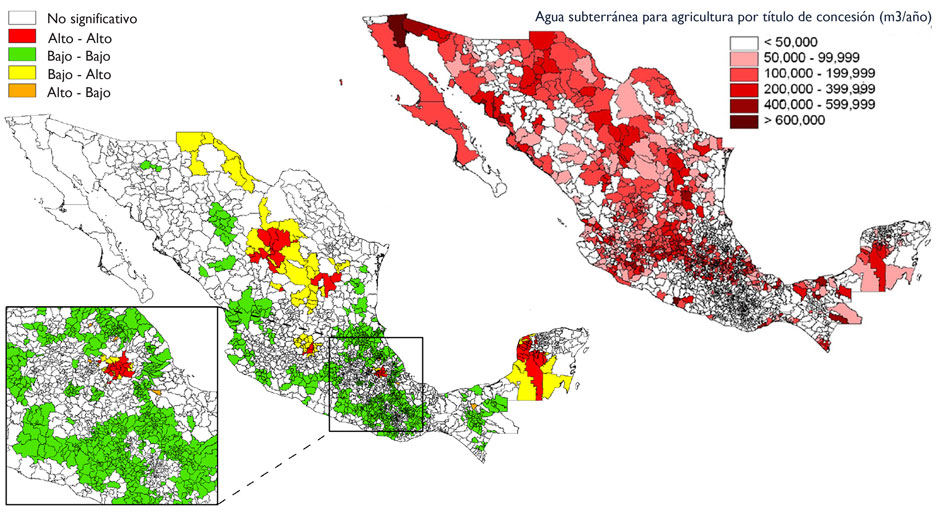Information flows and policy: use of climate diagnostics and cyclone prediction for adaptive water-resources management under climatic uncertainty in western North America (SGP-HD 005)

1 Binational North American Monsoon Region including the Sonoran desert of Mexico and the United States – Map courtesy NASA
2 Hurricane Henriette flooding – courtesy CBS news
3 Agriculture consumes 70% – 90% of water in the region
Project information
The University of Arizona – Udall Center for Studies in Public Policy, and School of Geography and Development (EE.UU.)
Executive summary
The coupling of human and natural systems poses at least three major types of climate-related risks to human populations and economic activity in western North America:
exposure of human communities to weather extremes—from cyclones to drought,
dependence of growing populations on limited water supplies in this arid region, and
climate and water-related agricultural production and food security risk.
This human dimensions project builds on CRN 2048 on tropical cyclones by improving understanding of the combined impacts of East Pacific cyclones and the North American Monsoon on human systems, and mobilizes this knowledge to disseminate climate and water information to decision-makers, managers, and water users.
Goals
* Promote the exchange of climate information between scientists and policymakers in northwestern Mexico and the southwestern United States in a manner that strengthens adaptive management capacity.
* Promote the flow of climate information and collaboration through webinars and workshops
* Seek continued feedback on and dissemination of the Binational Climate Summary www.climas.arizona.edu/outlooks/bcs
* Use up-to-date diagnostics on regional weather and climate to examine how variability affects already- strained and chronically scarce water supplies.
*Work with key decision-makers to institutionalize new capacity-building processes for integrating climate information into future water supply planning.
* Compare tradeoffs between water augmentation and energy consumption in short-term adaptation responses.
* Investigate the contribution of cyclone precipitation to reservoir storage, and apply GIS analysis to research the impact of tropical cyclones over northwestern Mexico.
First results
* Great interest by urban and rural water managers in seasonal climate forecasts, but utility limited by:
Spatial and temporal resolution, varying sectoral priorities
* Primary focus is on short-term management (urban) and long-term risk reduction (rural)
* Lack of collaboration and cooperation among risk mitigation agencies
* Ecosystems are becoming an increasingly important consideration in water management
* Population and economic growth in the region are driving up water and energy demand
Project investigators
Christopher Scott (PI) – cascott@email.arizona.edu
The University of Arizona – Udall Center for Studies in Public Policy, and School of Geography and Development (USA)
Robert Varady (Co-PI) – Udall Center for Studies in Public Policy
Co-investigators
Gregg Garfin –School of Natural Resources, Environment & Institute of the Environment
Margaret Wilder – Udall Center, Center for Latin American Studies, and Geography and Development
Barbara Morehouse – Institute of the Environment
Anne Browning-Aiken – Udall Center for Studies in Public Policy
Nicolás Pineda (Co-PI), Alejandro Salazar – El Colegio de Sonora (México)
Luís Farfán – Centro de Investigación Científica y de Educación Superior de Ensenada CISESE (México)
Graciela de Raga (PI, CRN 2048) – Universidad Nacional Autónoma de México
Information sharing available through workshop contacts
PDF File


